You all seemed to really like my cost of living post, so let’s dive into something equally as mundane – German groceries and supermarkets!
If you follow me at all here or on social media, you know that the Snook and I enjoy cooking and make a lot of things from scratch. Back in Australia, we even renovated our kitchen so we could get in a bigger fridge/freezer. Our normal process was that every Saturday I’d plan out the menu for the week and then we’d both go to the store to do a single weekly shop. We also got a veggie box delivered every two weeks as well. A couple of times a year we’d go to Costco and stock up on bulk things, and we’d also hit up the Aussie Meat Emporium every now and then to stock the freezer with meat. We’d generally cook probably 4 or 5 days out of 7, freezing any leftovers. We’d usually alternate who cooks, though since I made the menus I’d usually assign the really elaborate things to Rodd. 😉
Once we got to Germany, we realised pretty quickly that this system was going to have to change. The main problem is that German kitchens (at least the ones in apartments) tend to be smaller and have less storage space than we were used to. The AirBnB we were in for the first 10 days had only a bar-fridge and barely any pantry space! When we started looking for apartments, we deliberately looked a place with the biggest kitchen and fridge we could find. The one we got is great, but it’s still smaller than back in Sydney. We’ve got two cupboards to use for dry goods, a couple small shelves over the stove for spices, and then a stacked fridge/freezer.
We tried for the first few months to stick to the once-a-week Saturday shop but we’d struggle to store everything. We also tried out a veggie box delivery service but had the same issue, trying to figure out how to cram most of it in the fridge. The solution, it seems, is to do smaller shops, more frequently. How very European! 🥖
Our current process is to shop every 4-5 days (avoiding Sunday because everything’s closed here), and we take turns making the menu and going to the supermarket. One nice thing is that there are so many options within walking distance of our place. The main supermarket brands here in Munich appear to be Edeka and Rewe (analogous to Coles and Woolies back home), and there are like four Edekas of various sizes in the neighbourhood. For discount stuff there’s also Aldi Süd (different Aldis depending on which part of Germany you’re in!), Lidl, and Penny. There’s also Amazon Fresh for same-day delivery, which was a life-saver when we arrived! We’ve also found a couple Asian and Turkish groceries nearby for specialty items. Germans are big on organic, so there are also Alnatura organic supermarkets and a few farmers’ markets around too (though they’re mostly shut down due to Covid). And if you’re curious, we’re still mostly under lockdown here so current rules are you have to wear an N95 mask in any shops.
But anyway yeah, a plethora of options. Our default is the Edeka in Theriesenhöhe, just a short walk across Bavaria Park, mostly because it’s the closest and we’ve got a good feel for what’s available. (Aldi/Lidl always feels more hit and miss with what’s in stock.) It’s not huge, but they really pack in a lot of stuff! After seven months, we feel like we’ve mostly got it figured out. A lot of stuff is the same as in Australia, but there are still some wacky differences we’ve found. Read on for lots of pictures and details…
A caveat to the Germans: a lot of this is assumptions we’ve made, and we may have gotten them wrong! If you can correct me on anything, please do.
Let’s start with the veggie department. It’s got a pretty good selection! I’ll just highlight a few things that are different or fun…
As you might expect, there’s quite a range of cabbage (Kohl) available. One that was new to me is this pointy one called Spitzkohl. I think in English it’s a sugarloaf? I haven’t eaten it yet, but I am intrigued.
Spargel! Germans get super excited about asparagus, especially the white type you get this time of year. (Spargelzeit = asparagus season.) We’ve already had it a couple times. You can see they’ve set up a special display with cartons of pre-made Hollandaise sauce alongside.
As you might expect, there’s quite a selection of potatoes (Kartoffeln) as well, both loose and in bags. One thing I like about the bagged potatoes is that they organise them by method of preparation. The blue ones are “mehligkochend” (floury), and there’s a picture of mashed potatoes on them. So helpful! The green/blue one is “festkochend” (waxy), and the picture is of potato salad. The red one is “vorwiegend festkochend” (predominantly waxy) – though I’ve got no idea what you do with that. I literally did a double-take when the light green bags appeared recently. Spargel Kartoffeln! Potatoes especially for serving alongside your asparagus. (I told you they’re crazy about Spargelzeit.)
There’s also a pretty big selection of organic (“Bio”) fruit and veg too. Germans love their organic food.
In addition to fresh Italian-style pasta, you can also get various fresh German dough products like Spätzle (similar to gnocchi)*, Maultaschen (similar to ravioli), Knödel (potato or bread dumplings), and Dampfnudeln (steamed sweet rolls). We’ve been experimenting with some of these. We got a tip to slice up the Maultaschen and fry them with scrambled egg, and it’s a great fast weekday dinner.
*Edited to add: my friend Thorsten insists that I correct the comment on Spätzle, because Spätzle is made from flour and gnocchi are made from potatoes.
I was surprised and happy to see US-style Pillsbury canned dough for various baked goods. That’s definitely not a thing in Australia. There’s also a wide range of other doughs, including strudel, pizza, and Flammkuchen. (Flammkuchen is similar to a pizza but doesn’t have a tomato-based sauce.)
Dairy! Lots of different varieties of milk, kefir, buttermilk, quark, yogurt, even Skyr. Organic options too, of course. We’ve been buying literal buckets of Greek yogurt for our breakfast. 😂
The Snook does a lot of baking, and he was both delighted and perplexed at the range of different flours available here. He’s experimented with a fair bit of it. Oddly, doesn’t seem to be any self-raising flour. One thing that’s tripped up a few of my recipes is that brown sugar as Aussies and Americans know it (sort of soft?) doesn’t exist here. “Brauner Zucker” is dry crystals, but it doesn’t have molasses and it doesn’t work the same in cookies and recipes. Supposedly you can find it in some specialty shops, but I haven’t managed to locate any yet. Another slight surprise was baking powder. It exists, but you have to buy it in little packets as opposed to a little tub like we’re used to. We’ve also been unable to find “cream of tartar” anywhere. (The Snook needed it for his meringue mushrooms a few months back, but he managed without.)
The range of rectangular loaf-style bread is really small, but I wasn’t super surprised. There are bakeries all over the place, and it’s much more common to use a fresh bread roll for sandwiches. Really, this stuff is mostly for toast. The pre-made hamburger buns are also really disappointing, but they’ve got quite a lot of partly baked “bake at home” rolls that are pretty good. What we do really like and buy regularly are Knäckebrot (crisp breads), which we have for lunch with cheese and various meats.
Speaking of cheese… The range is pretty good, with a lot of Swiss-style mild cheeses. The only unexpected discovery there is how little Cheddar there is. I’m used to big 750g blocks in Australia, but here you can only get these dinky little ones. Definitely no Colby or anything like that though. The little Babybel cheeses are plentiful though, and at the big Edeka you can even find giant ones! We usually keep Frischkäse mit Kräutern (cream cheese with herbs) and Bavaria blu (“Der würzige Blauschimmelkäse” = the spicy blue mould cheese) on hand to go with our Knäckebrot.
I’ve been spoiled by the wide range of Asian food available in Sydney, so the rice selection was definitely disappointing. It’s small bags, and pretty expensive. We buy it instead at the local Asian grocery store, which has better value.
You know what Germans do love though? Cookies and candy. Every supermarket seems to have multiple aisles devoted to Keks (cookies), Kuchen (cakes), süßgebäck (sweet pastries), salzig gebäck (salty baked things), chocolates, and gummy candies (this is the land of Haribo, after all!). The Snook has to have a bickie with his afternoon coffee, and our favourites so far are the Leibnitz Keks’n Cream Choco Doppelkeks.
We don’t really buy a lot of juice, but I couldn’t resist showing some of the selection. In addition to your normal apple, orange, pineapple, grape, etc, there’s also beetroot, tomato, carrot, “vegetable,” and sauerkraut juice available. SAUERKRAUT. (And of course, it’s organic.) 😳
Spezi! Of course there’s normal Coke and stuff, but Spezi is a special German soft drink flavour that’s basically cola mixed with orange. There are several different brands. It’s… all right.
Even our little Edeka still has an aisle of “international foods,” which is great for specialty things that we use regularly like curry paste, capers, and panko. You can also get some “Mexican” stuff like nacho ships, salsa, and tortillas. One thing we found surprising though was how expensive coconut milk is (like upwards of $3 AUD a can)!
Spice selection. The only thing we use frequently that we’ve had trouble finding is cumin, for some reason. I ended up buying some from Amazon. 🤷♀️
If you like your veg fermented, this is a great place to be. There’s like an entire aisle of pickled things, and we’ve been having fun trying out different variety of Gurken. My favourite so far is with with bärlauch (wild garlic). There’s also a wide range of sauerkraut, as you might expect, in all different colours and flavours.
Germany is CURED MEAT HEAVEN. So many different types of geräucherter Schinken (smoked ham), Wurst (sausages), salamis, and more. One of our favourites is the Käseknacker, a smoked kransky with little chunks of cheese in it. (It’s so tasty, but I’m sure it’s taking a day off our lifespans every time we eat it.)
There’s also another big cheese counter. 😍🧀
The fresh meat situation has honestly been the biggest change for us. There’s not a lot of pre-packaged meats by Australian standards. There’s a decent meat counter, but a lot of the cuts are different and the Snook is less confident talking to a butcher auf deutsch. In terms of chicken, we used to primarily buy thigh fillets to use in curries and stews. These don’t seem very popular here though, and most of the time there aren’t any. Also, there are almost no fresh sausages. Other than some bratwurst in the meat counter, everything is cured. I’m so used to Australia where you can get a dozen different types of fresh gourmet sausages! For mince, there’s basically just beef and beef/pork combo. Sadly, there’s hardly any lamb in the supermarket and it’s super expensive. I guess Germans don’t eat much of it. The Snook was thrilled to see that the Turkish grocery carries a fair bit of it though, so we’ve managed to get a couple lamb shoulders from there.
Bavarians apparently like fish, so there’s a small selection of fresh seafood available. It’s a far cry from what Aussies would be used to though! To be fair, we’re not exactly next to the ocean here…
In addition to buying cartons of eggs, you can also by them individually! They provide empty cartons for transport. I guess if you have a tiny fridge, that makes a lot more sense.
I was delighted to see pre-dyed Easter eggs for sale in recent weeks, including by the each as well!
That brings us to the freezer section, and one of the most baffling discoveries of the past six months: Germans don’t eat fruit pies. (Or meat ones either, really.) It’s like we’re in an alternate universe where shortcrust pastry-based food just doesn’t exist. I guess the strudel really fills that niche here? The closest thing to a pie we’ve seen are various cakes with fruit on top. More happily, the freezer section also contains a lot of frozen goose and duck parts, which we have enjoyed on many occasions. Those were a lot pricier and hard to get back home! And despite our tiny amount of freezer space, we’ve always had a selection of bake-at-home frozen pretzels in there since the day we discovered them. Having fresh giant pretzels hot from the oven is a luxury to which I had never before aspired…
Lastly, booze! It’s legal to sell in grocery stores here, hallelujah. And no crappy Budweiser in the beer aisle either. There’s quite a range of local beers – mostly helles (aka light Munich-style lager) – mostly in glass bottles (some cans) with crates you can use to transport home. I was pleasantly surprised to see how many non-alcoholic options there were too. I guess it’s a way for non-drinkers to still feel part of the beer culture here? The wine selection is small but decent enough for our needs. German wines tend to be white (the climate doesn’t suit reds as much), but I’ve found a decently cheap Chilean cab sav that I buy for cooking and table wine. (That sound you hear is my Spanish boss Enrique screaming in horror.) Yes, they do have tetrapacks of super cheap stuff – hello goon! – but it doesn’t look like it has any pretensions to drinkability. I’m not going near it. 😂
This is German automation at its finest – the Leergut-Automat. It’s a reverse vending machine for your empty beer bottles, cans, and crates! You put each bottle or can into the round opening and scanners read the bar code. If it’s accepted, you drop the item and it moves along a little conveyor belt. You can also return your plastic crate in the big opening at the bottom. Once you’re done, you hit a button and it prints out a receipt with credit and you can use at the checkout. “Pfand” (deposit) for reusable beer bottles is 8c, but for cans it’s like 25c. (Sadly, no deposit on wine or booze bottles so they just go in the recycling.) Interestingly, we’ve had beer delivered a couple times and the delivery guy will also take away your empties and give you credit for them. Pretty cool!
And thus ends my tour of our local German grocery store. (Well, actually it took me like three trips to get all these photos.) If I’ve gotten something wrong or you have a local recommendation, please let me know!



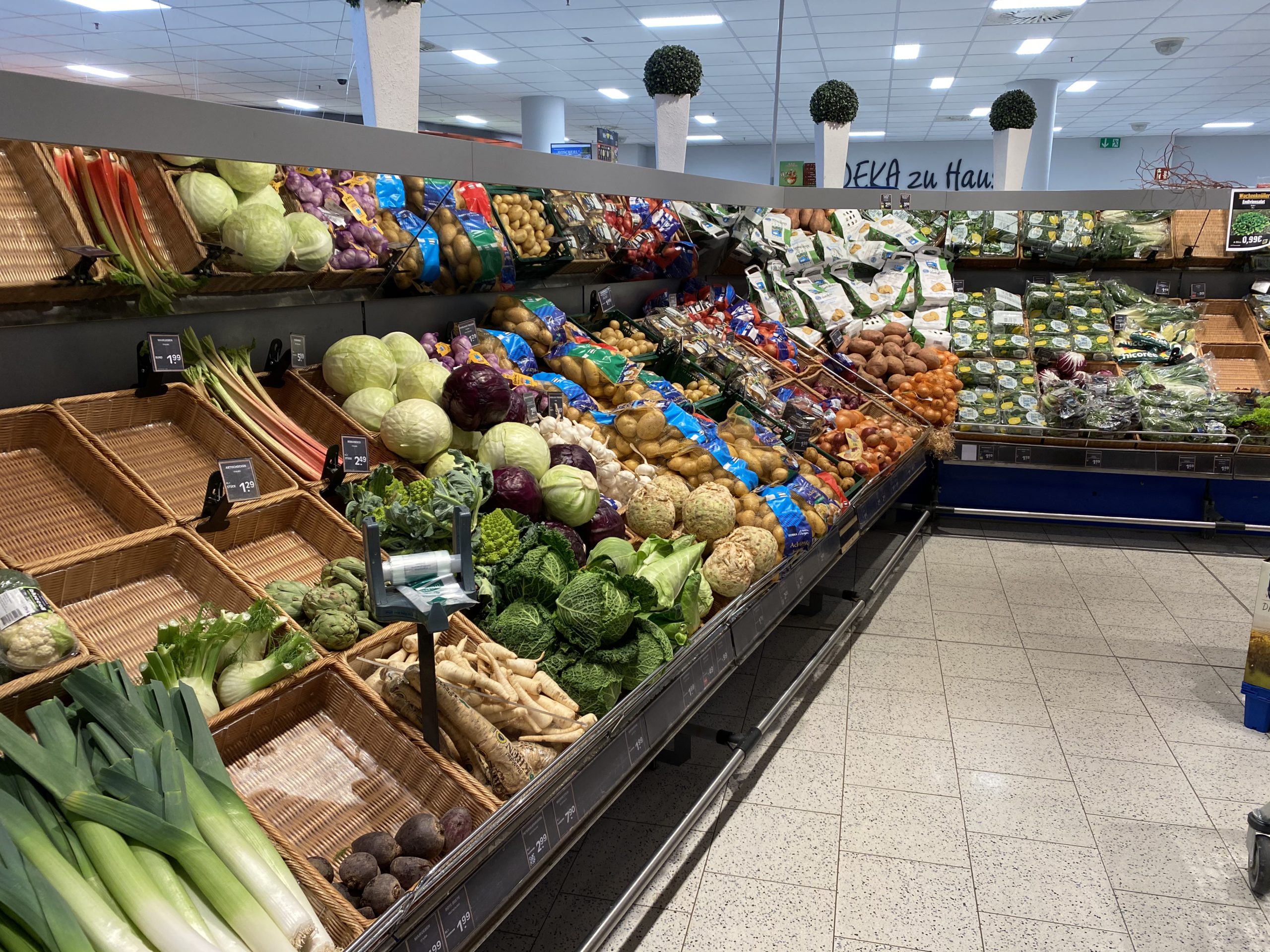
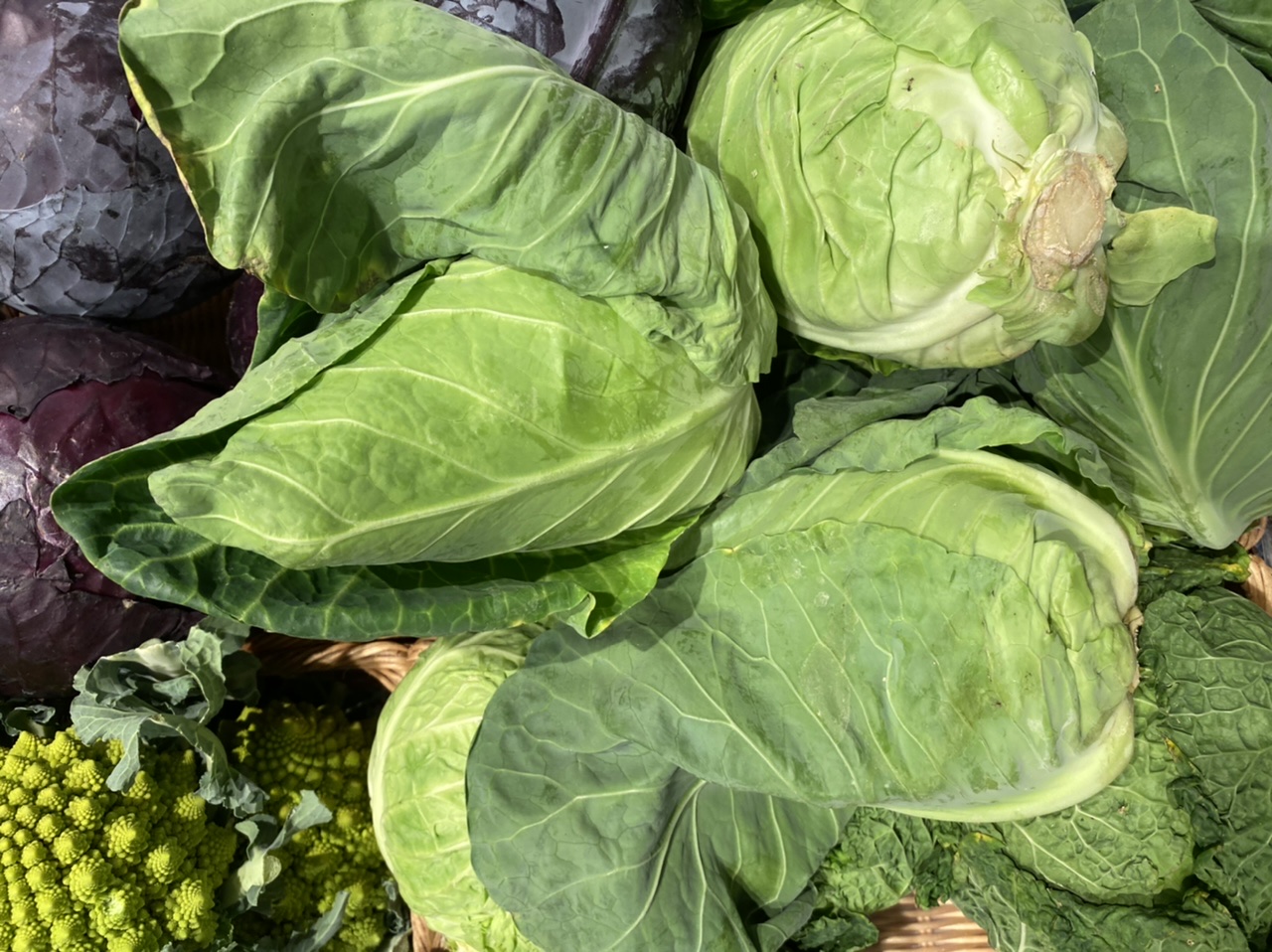
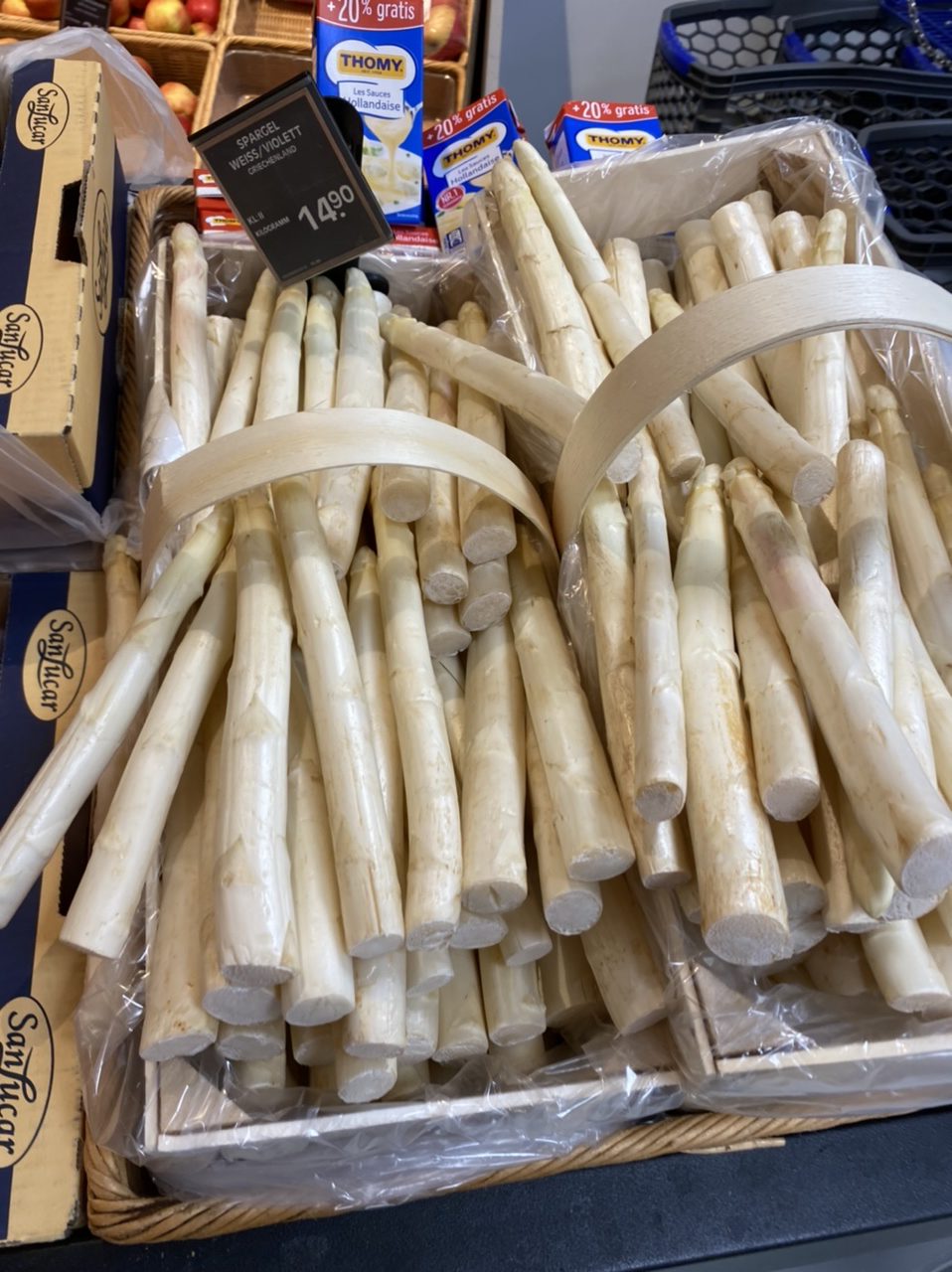
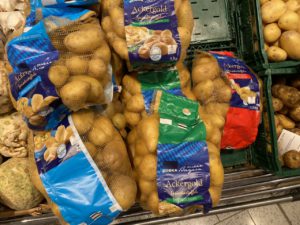
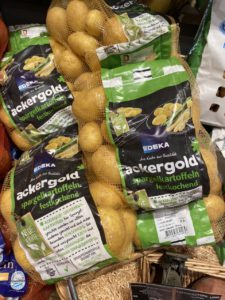
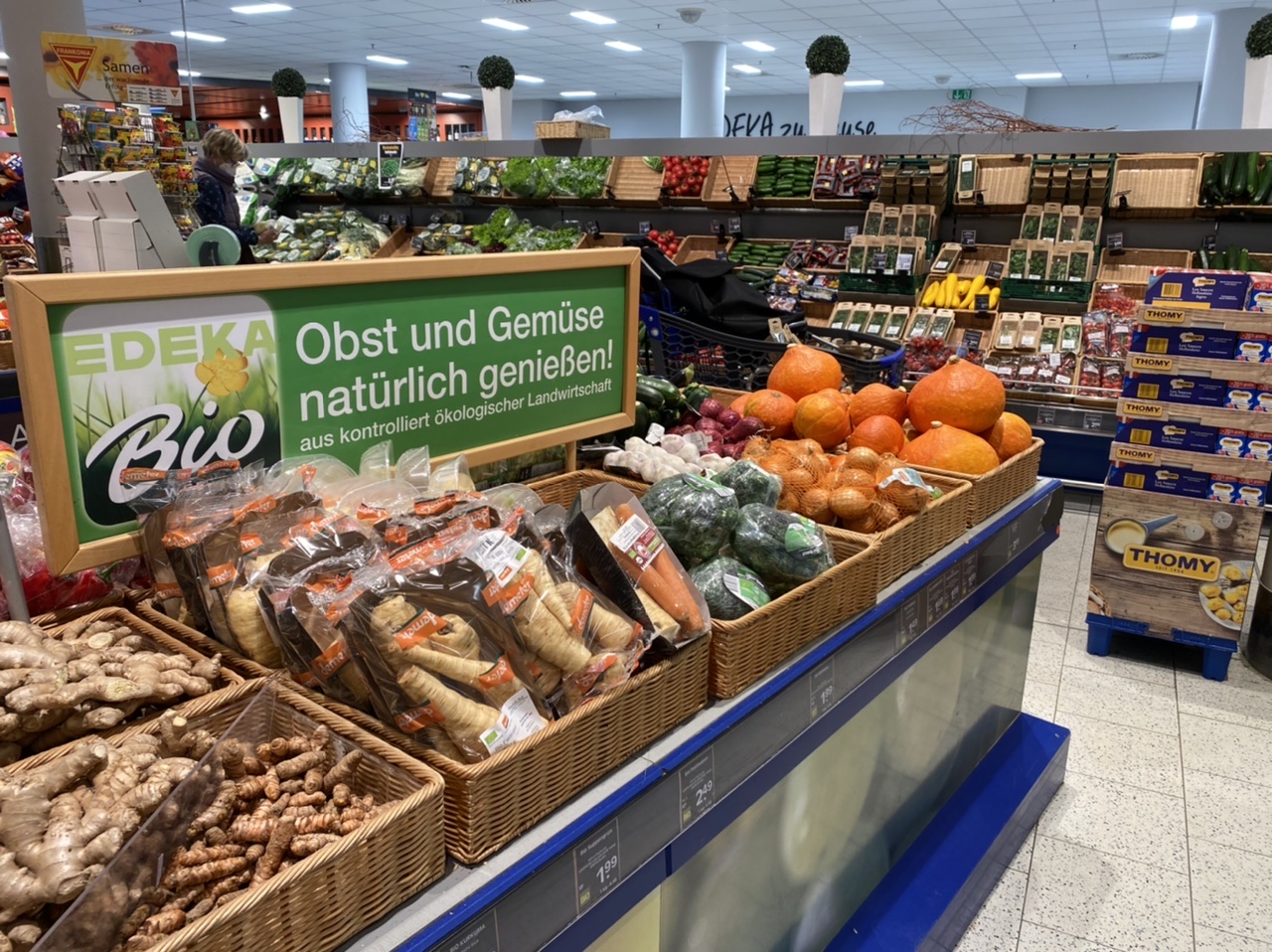
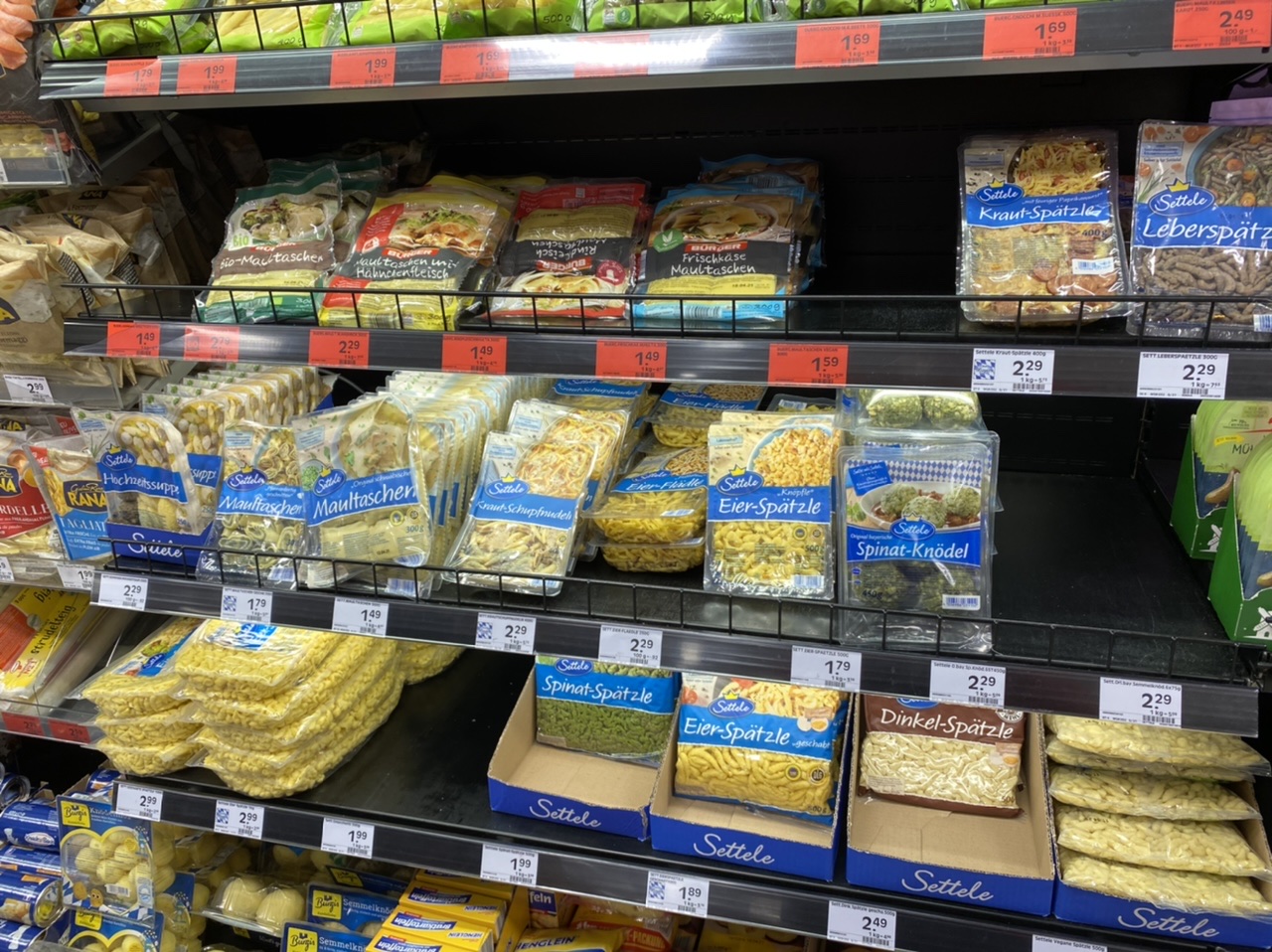
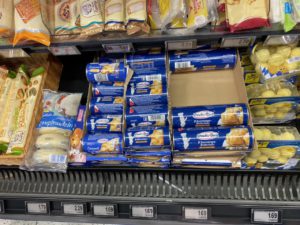
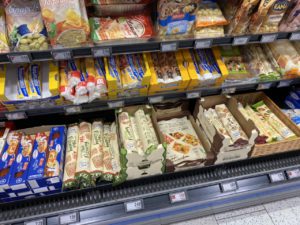
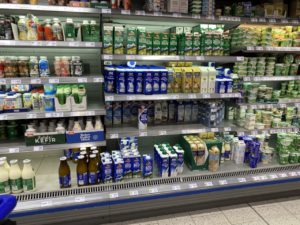
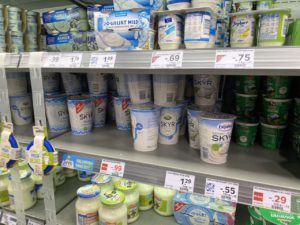
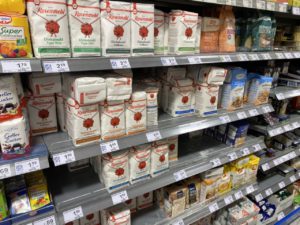
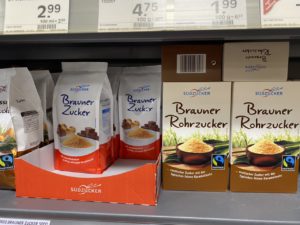
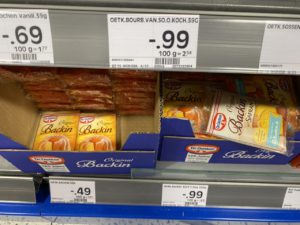
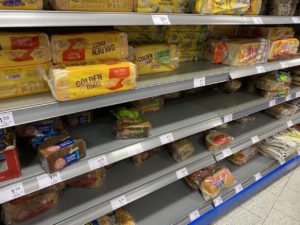
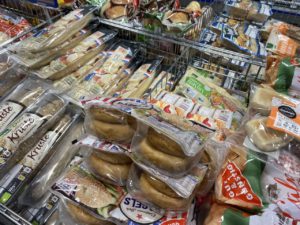
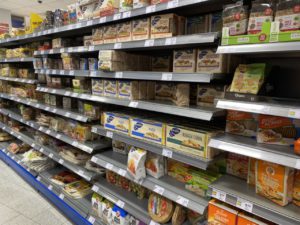
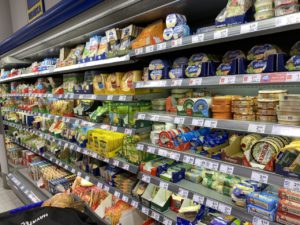
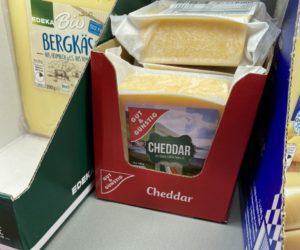
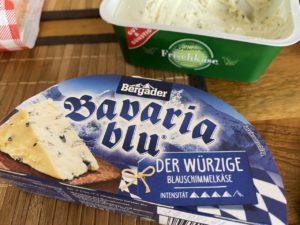
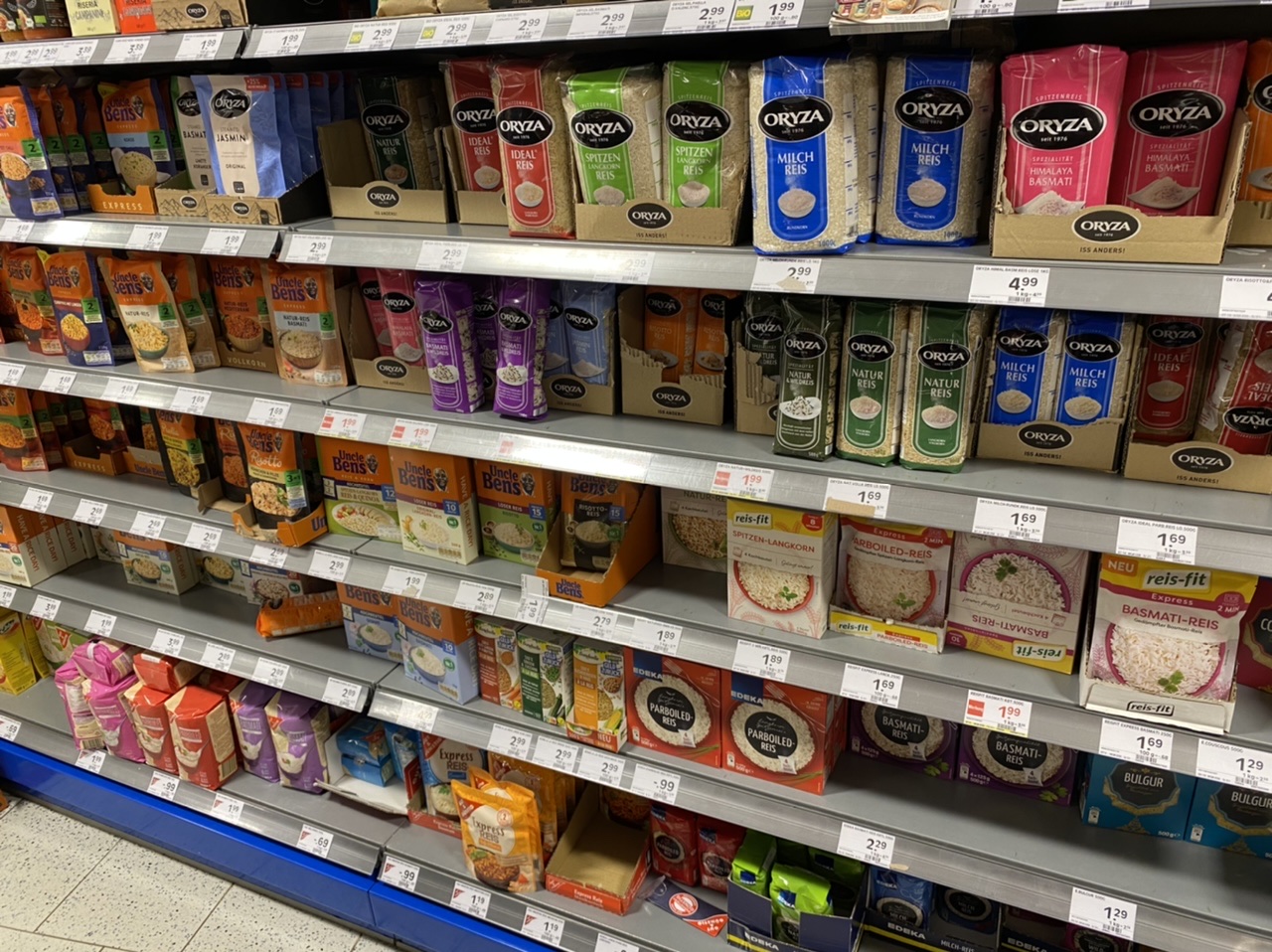
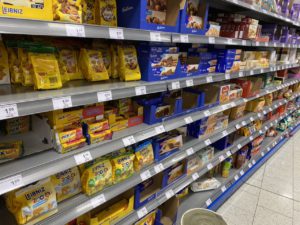

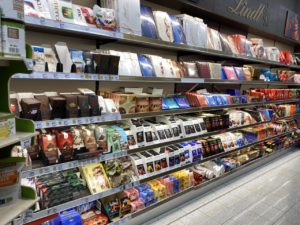
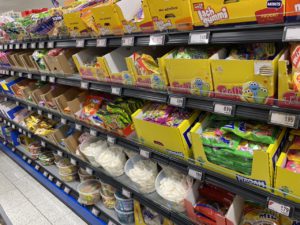
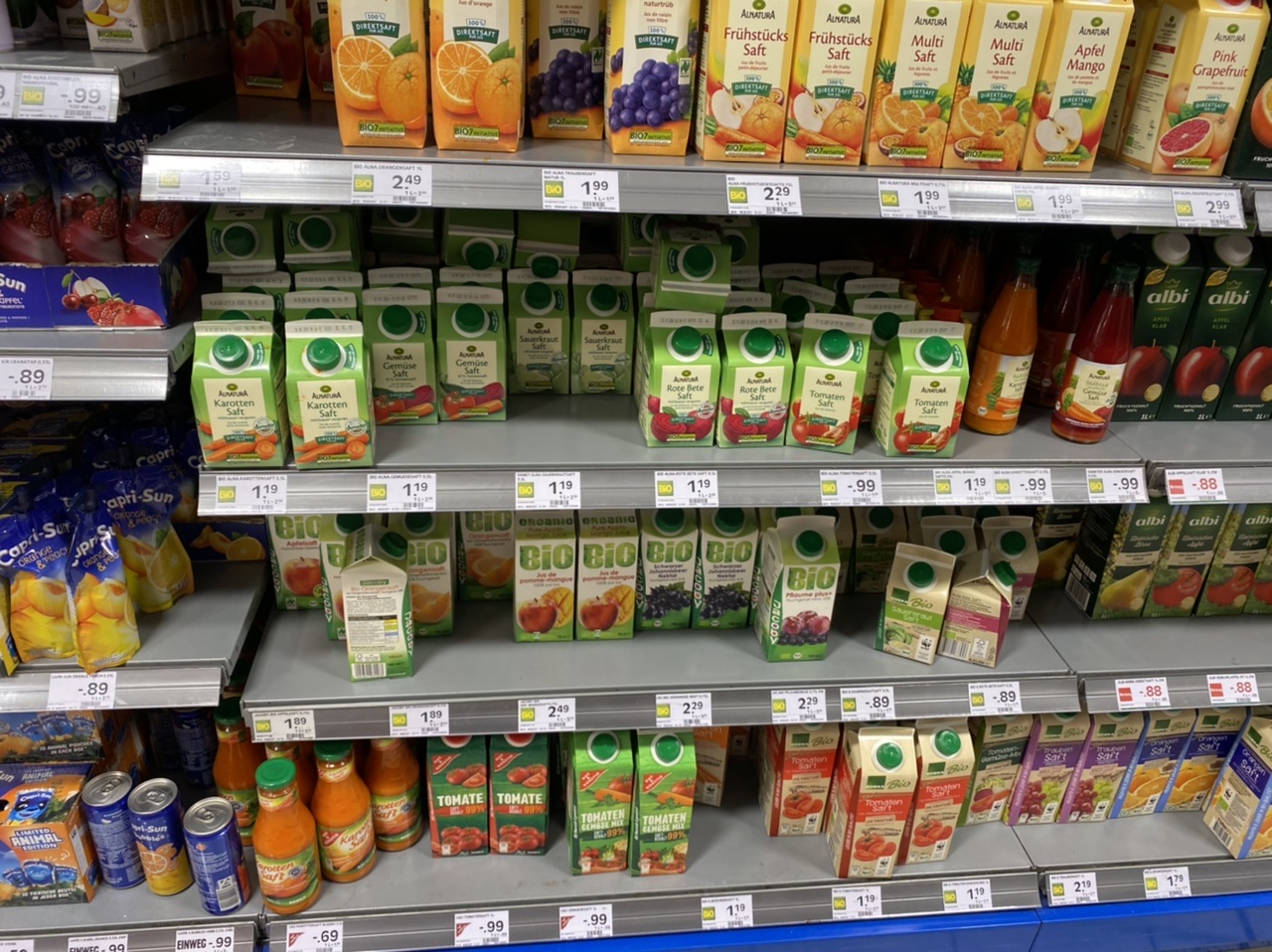
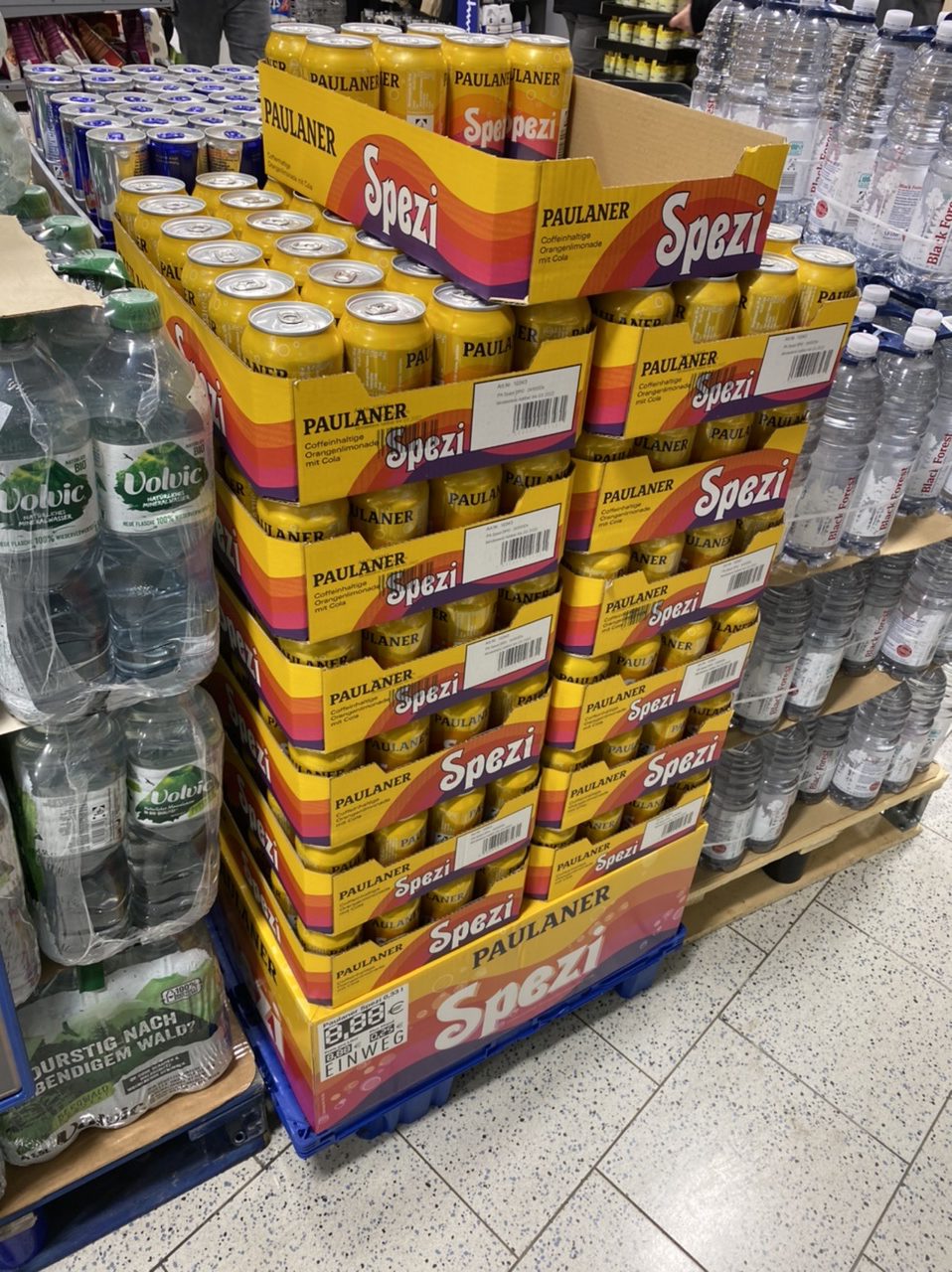
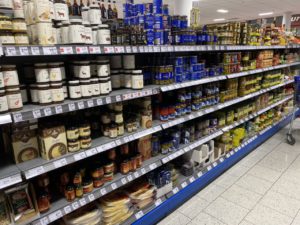
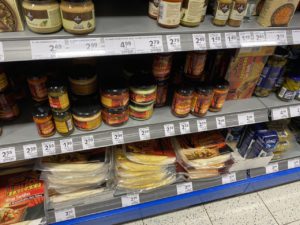
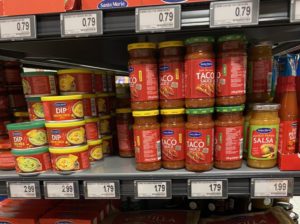
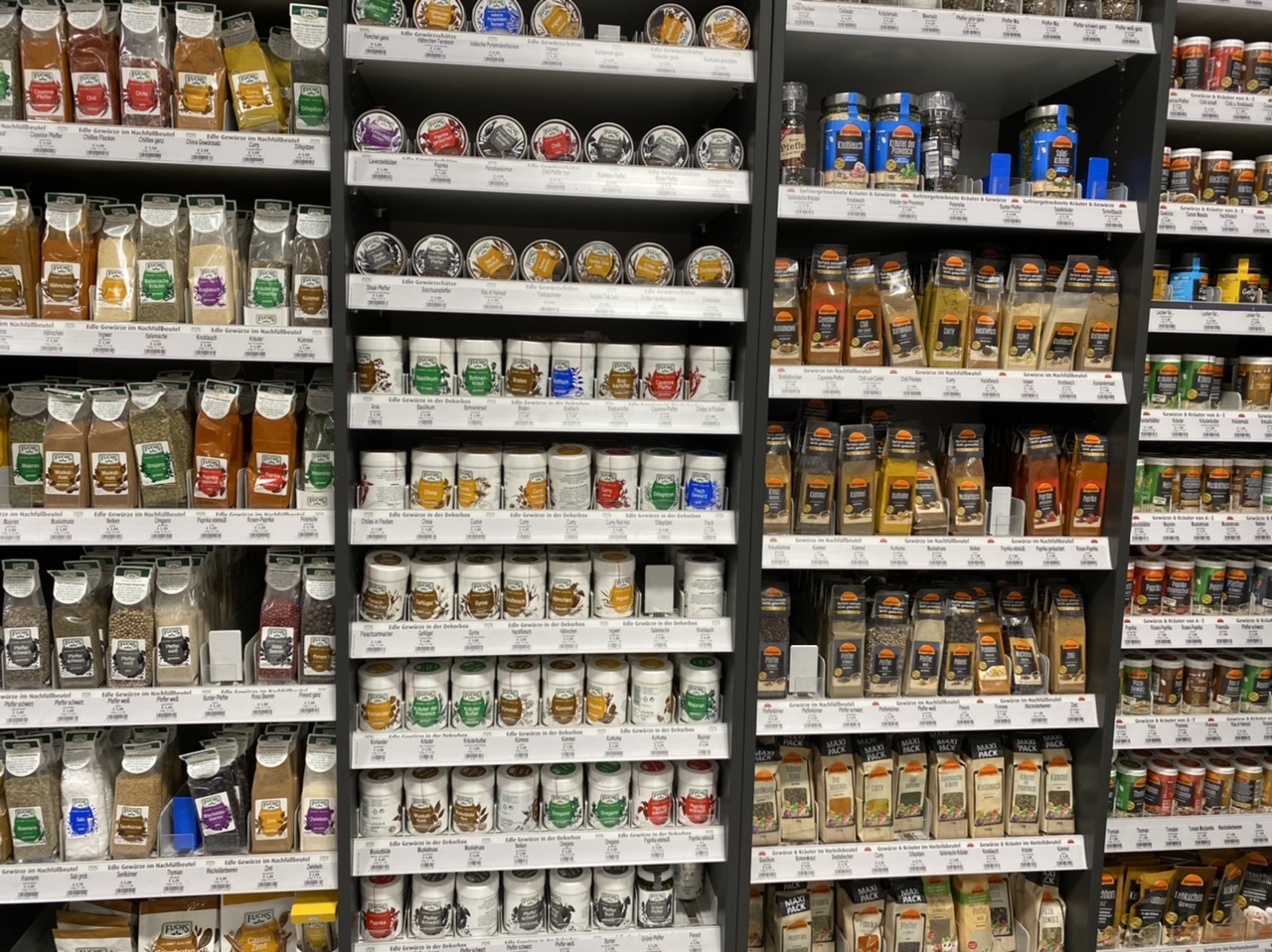
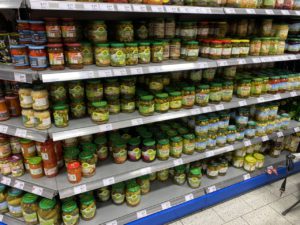
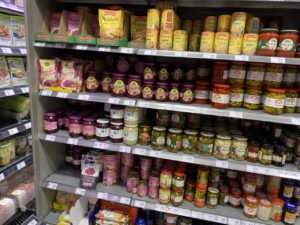
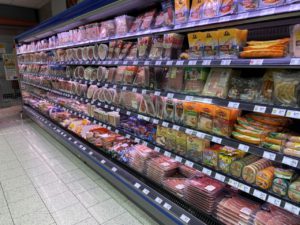
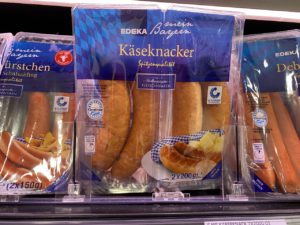
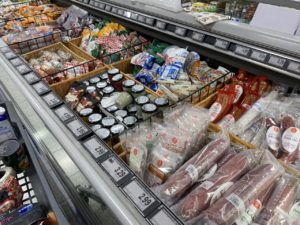
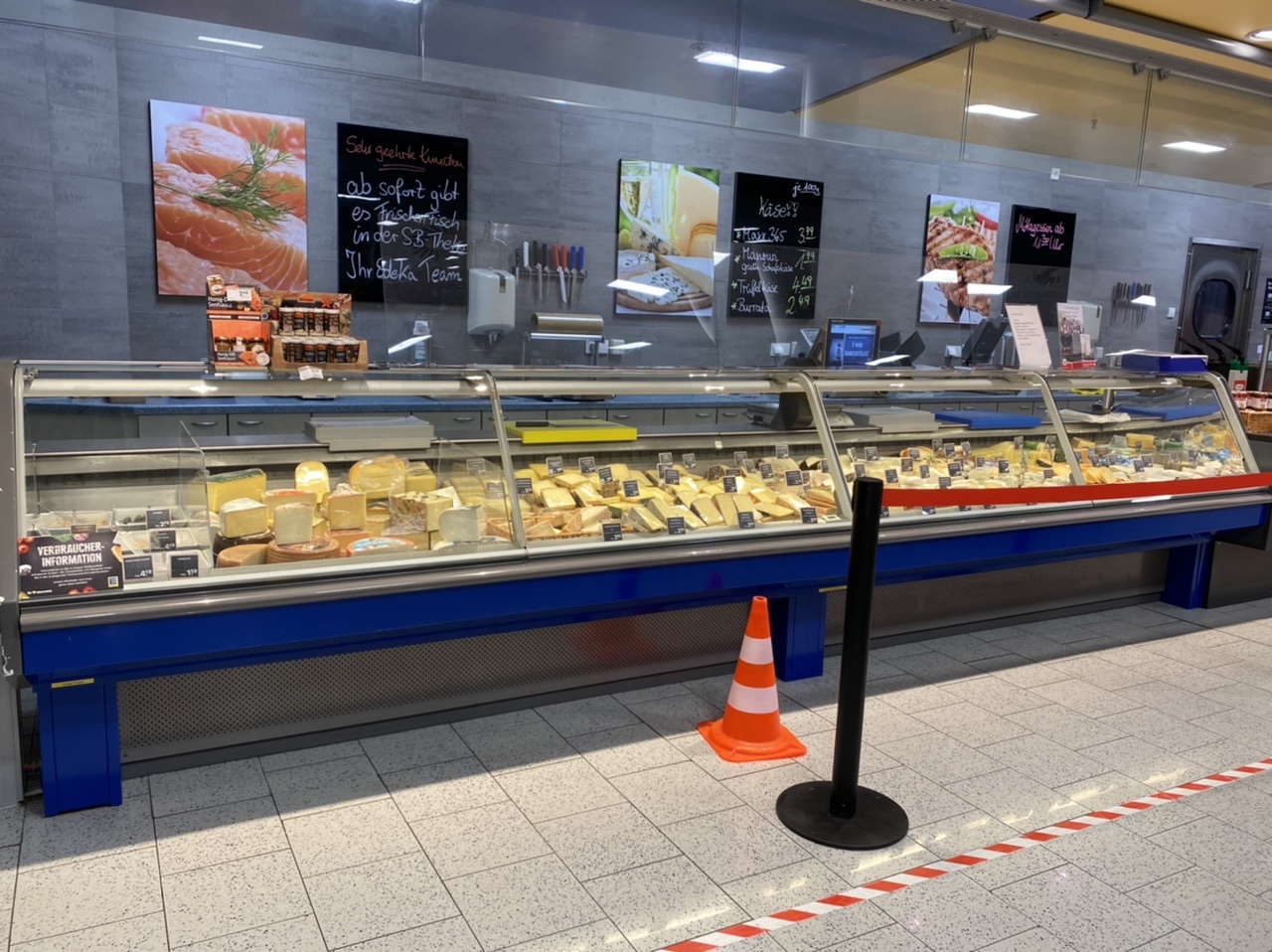
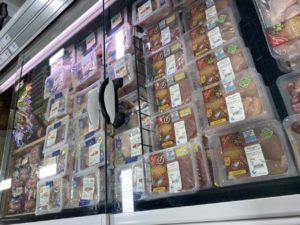
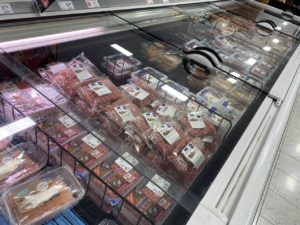
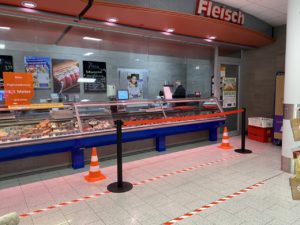
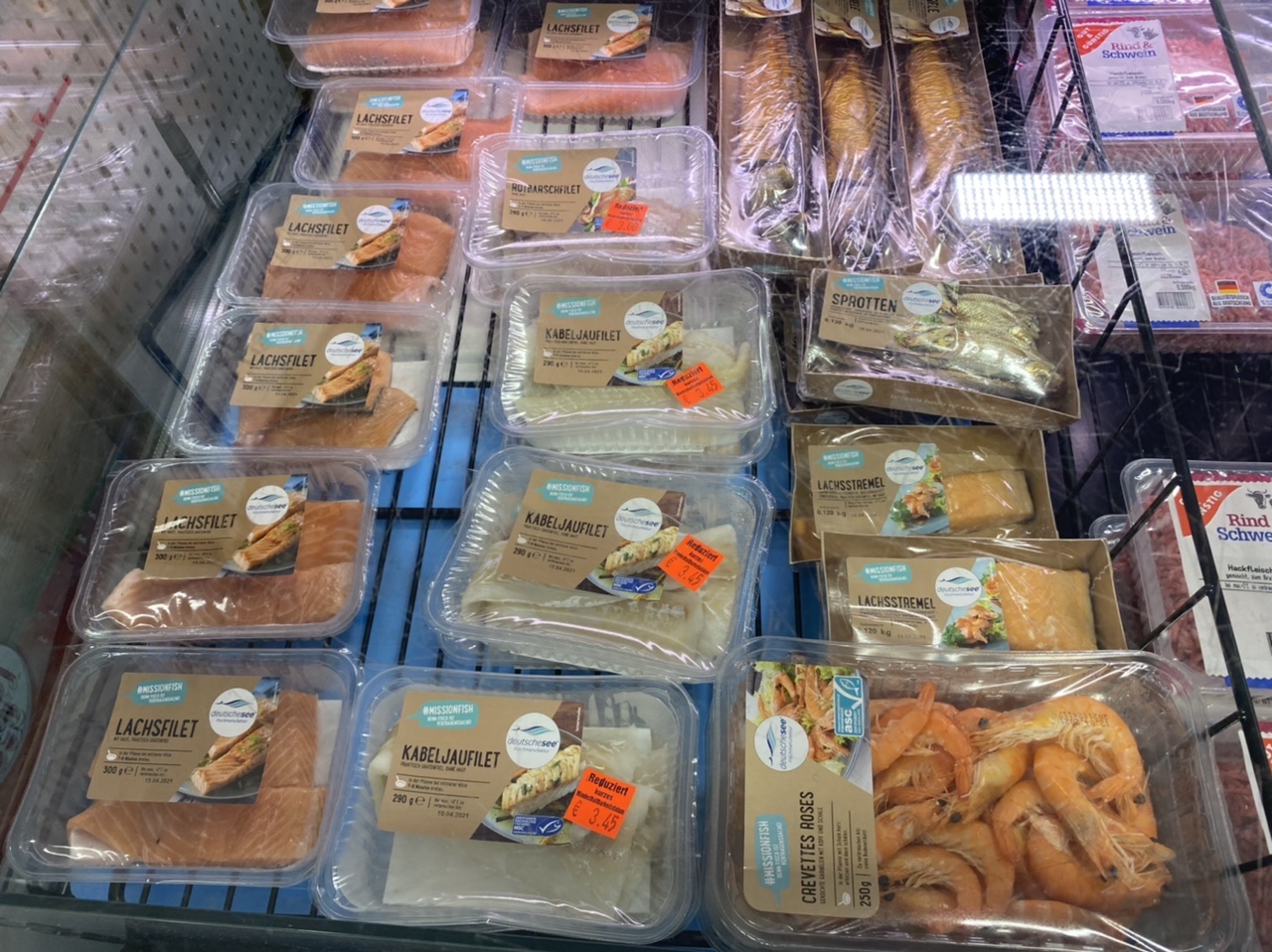
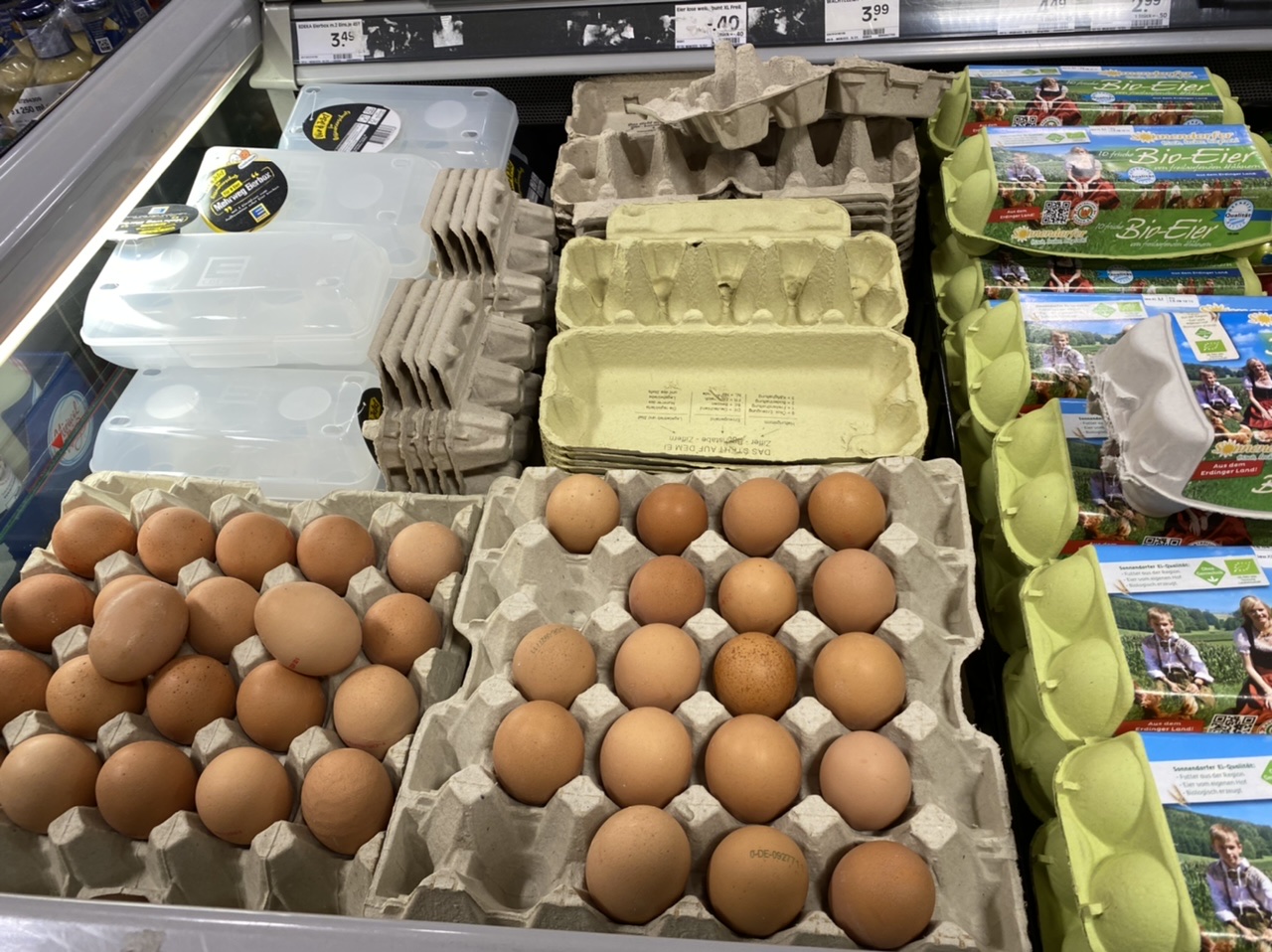
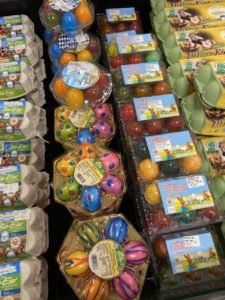
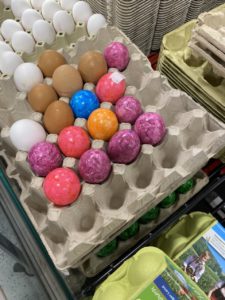
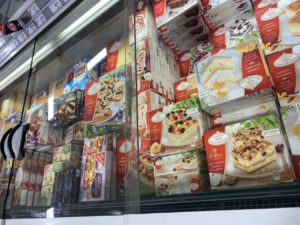
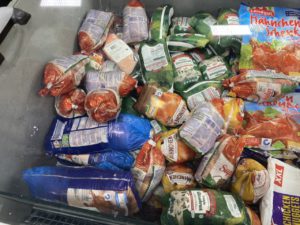
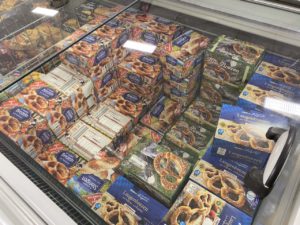
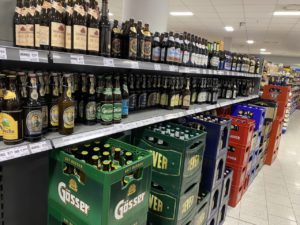
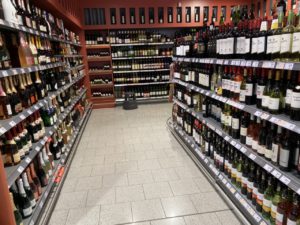
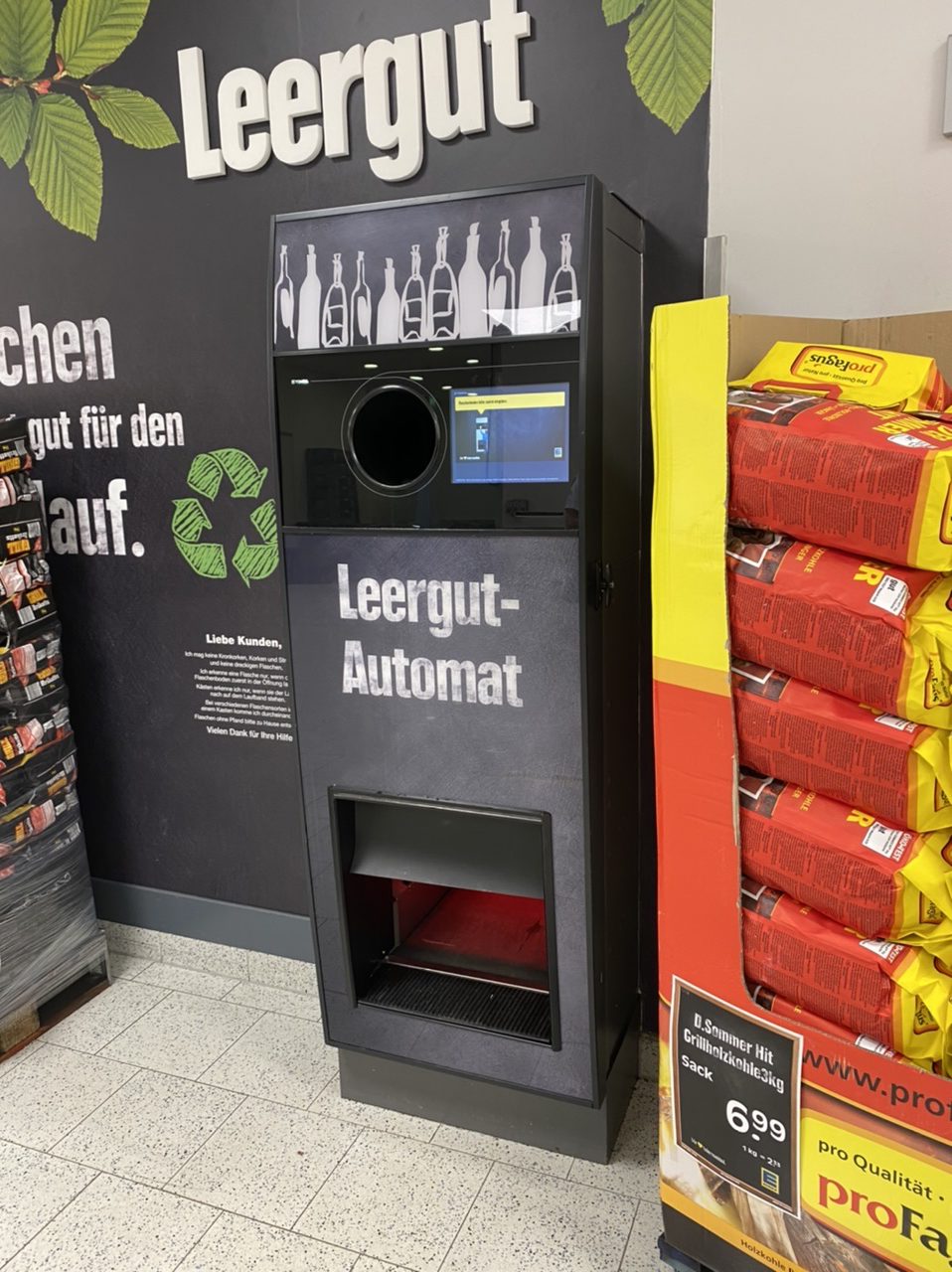
Comments
10 responses to “A Trip to the Supermarket”
Great post.
I know Spitzkohl as pointed or sweetheart cabbage -it has a mild less ‘cabbagey’ taste.
Vorwiegend festkochend – allrounder potatoes for those who don’t want 2 sorts at home.
There isn’t any SR flour – use 1 tsp Backpulver per 100g of any flour.
You can get Vollrohrzucker (softish brown sugar) at Alnatura. And have you noticed Rohrohrzucker? 😆
Cream of tartar – Weinsteinbackpulver (Alnatura)
Mature cheddar is hard to find. I’ve been using Beemster royaal when I need it for cheese sauce or gratins etc.
I’ve never seen thigh filets here – they’re still attached to the rest of the leg 😂
Pies aren’t part of German food culture – whether savoury with pastry (or potato) on top or sweet with fruit. My MIL always liked when I made pies.
We get wine from Jaques Weindepot. In store or delivered.
A few comments.
Spätzle are made of flour, eggs, water and salt. Then are scraped of a chopping board into boiling water or pressed through a Spätzlepresse. (Gnocchi are normally potato)
Spitzkohl in Britain is called pointed cabbage or sweetheart cabbage. It is sweeter and softer than white cabbage and really good for stir fries.
Cream of tartar is Weinstein. In Germany I only know it in organic baking powder. You don’t get self-raising flower in Germany. And baking powder in little sachets was invented by Dr. Oetker to make it easier to measure. The same with custard powder.
Instead of Cheddar Germans use Gouda. And I know it’s not the same at all.
With juices try black currant and morello cherry. They are really lovely especially in summer as Schorle, so half and half with sparkling water. Very refreshing.
Instead of fruit pies we have all the Blechkuchen with fruit on, like apple, rhubarb, plum often with crumble on top.
Oh, and have you tried Hering in Sahnesoße?
They’ve already said what I wanted to! Pointed cabbage etc. Enjoy!
Interesting post! I never had trouble to find cumin/Kreuzkümmel though. Not even the Turkish grocery store?
Sounds like maybe we just got unlucky with the Kreuzkümmel! We did manage to get some delivered. Good to know it’s not unheard of. 🙂
I love going to grocery stores when I travel to other places. I really enjoyed this virtual tour!
Vegemite in the international food aisle? 🙂
Sadly no! And no Tim Tams either. Strangely I appear to be surviving just fine. 😂
I used to work in the office building above the Theresie Edeka. I recall one or two of the people behind the butchers’ counter spoke English. And the bakery attendants were a hoot.
I often makes fruit pies with the premade/prerolled pastry that they sell here. For many years I was using rectangular pastry and then patching it up into a circle. But then I realized that Rewe sells circular pastry too. For a pie plate, I had to order one online because I couldn’t find one in any shops. The pie plates from Emile Henry are nice.